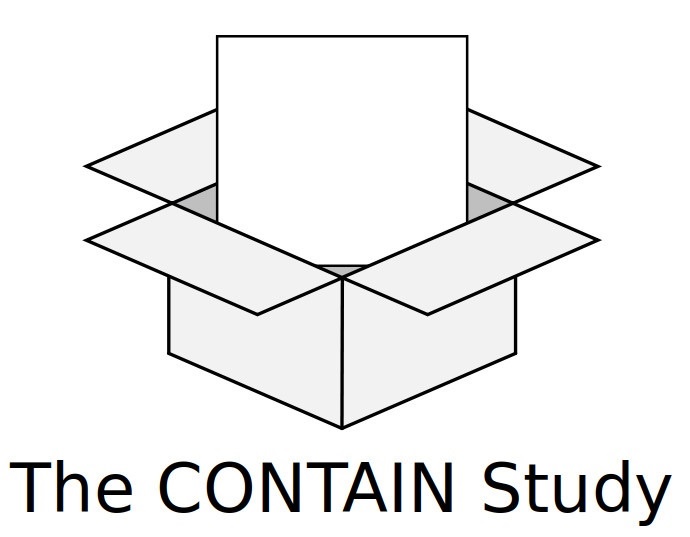D 
Funder: British Society for Rheumatology , Versus Arthritis
Chief investigator: Professor Gary Macfarlane
Co-investigators: Professor Gareth Jones , Dr Rosemary Hollick , Professor Peter Murchie , Dr Daniel Whibley , Dr LaKrista Morton , Dr Kevin Stelfox
With the emergence of the COVID-19 pandemic, there was understandably a lot of research directly related to the virus. However, we were at risk of forgetting people with chronic diseases just at a time when their need was greatest, and with severely reduced access to healthcare services. In the CONTAIN study, we surveyed participants of three of our other studies, BSR-PsA , BSRBR-AS and MAmMOTH in order to determine:
- Their current health, and specifically how this changed since they were previously surveyed;
- Their experience of and access to care; and
- Their perceived current and future care needs.
We then conducted in-depth interviews with a sub-group of participants to explore these issues further.

Further information
- Background to study
-
The COVID-19 pandemic has resulted in unprecedented changes to the life of people throughout the world, including the United Kingdom. In a very short space of time social distancing measures were, and continue to be, put in place confining people to their home and only able to leave for specific activities.
We know from previous studies that two key aspects of maintaining musculoskeletal health are taking regular exercise and maintaining good mental health. Exercise is likely to have been adversely affected by the lockdown conditions, while mental health is likely to have suffered due to anxiety around the pandemic generally, concerns about one's own health, and the effects of social isolation caused by the amount of time required to be spent at home. Many will have experienced changes in their workplace; some may still be working in very stressful conditions, while others may have moved to home working, been furloughed or even lost their job.
An early report found that there had been a significant increase in post-lockdown musculoskeletal complaints. More than half reported they were exercising less, with new pain in the back, neck or shoulder and around two thirds reported loss of sleep due to worry. At the same time patients have experienced a radical change in healthcare delivery, with almost all appointments moving to telephone or online, and reduced access to many services.
While there has been a primary focus on undertaking research directly related to COVID-19, it is important not to forget people living with chronic diseases at a time when their need is greatest.
- What were the aims and methods of the study?
-
The study followed people who have taken part in one of our recent studies. It included people with different types of arthritis as well as those with chronic pain. These people were invited to participate in a short online questionnaire, covering a range of topics including:
- Their current health and how this may have changed since they were last surveyed
- Their employment status, and how their employment has been affected by the COVID-19 lockdown
- Their experiences of healthcare during lockdown, including changes to healthcare services and any virtual healthcare services accessed
Participants were also be invited to volunteer to participate in a telephone or video call interview in order to gather more rich information about their experiences during the COVID-19 pandemic and subsequent lockdown.
- How will this research benefit patients?
-
We have produced three reports (which you can access in the tab “What results has the study produced” below) We hope this will provide a better understanding of these patients' experiences of employment, access to healthcare services, mental and physical health outcomes and the challenges they may have faced at this difficult time, and will help to inform future practice and service delivery.
- What results has the study produced?
-
The study has produced three main research papers:
- Macfarlane et al. The effect of COVID19 public health restrictions on the health of people with musculoskeletal conditions and symptoms: the CONTAIN study . Rheumatology. 2021 Apr 21: keab374
A Plain Language Summary for this paper is also available here .
- Morton et al. Lessons from experiences of accessing healthcare during the pandemic for remobilising rheumatology services: a national mixed methods study . Rheumatology Advances in Practice, 2022 Feb 16: rkac013.
A Plain Language Summary for this paper is also available here .
- Morton et al. Enabling work participation for people with musculoskeletal conditions: lessons from work changes imposed by COVID-19: a mixed-method study . BMJ Open 2022;12:e057919.
A Plain Language Summary for this paper is also available here .
- Macfarlane et al. The effect of COVID19 public health restrictions on the health of people with musculoskeletal conditions and symptoms: the CONTAIN study . Rheumatology. 2021 Apr 21: keab374
- Study team
-
Principle investigator
Co-investigators
- Professor Gareth Jones
- Dr Rosemary Hollick
- Professor Peter Murchie
- Dr Daniel Whibley
- Dr LaKrista Morton
- Dr Kevin Stelfox
Research team
- Marcus Beasley - MAmMOTH Study Coordinator
- Dr Karen Keenan - BSR-PsA Study Coordinator
- Dr Eva-Maria Bachmair - Study Coordinator
- Maureen Heddle - BSRBR-AS / BSR-PsA Assistant Study Coordinator
- Barry Morris - BSRBR-AS / BSR-PsA Project Assistant
- Stuart Anderson - Data Assistant
- Information for participants
-
You can view or download copies of the study Participant Information Sheets below:
- BSRBR-AS (Microsoft Word )
- BSR-PsA (Microsoft Word )
- MAmMOTH (Microsoft Word )
- Contact details
-
This study has now finished - but you can contact the epidemiology team about this study on their group email: epidemiology@abdn.ac.uk .
